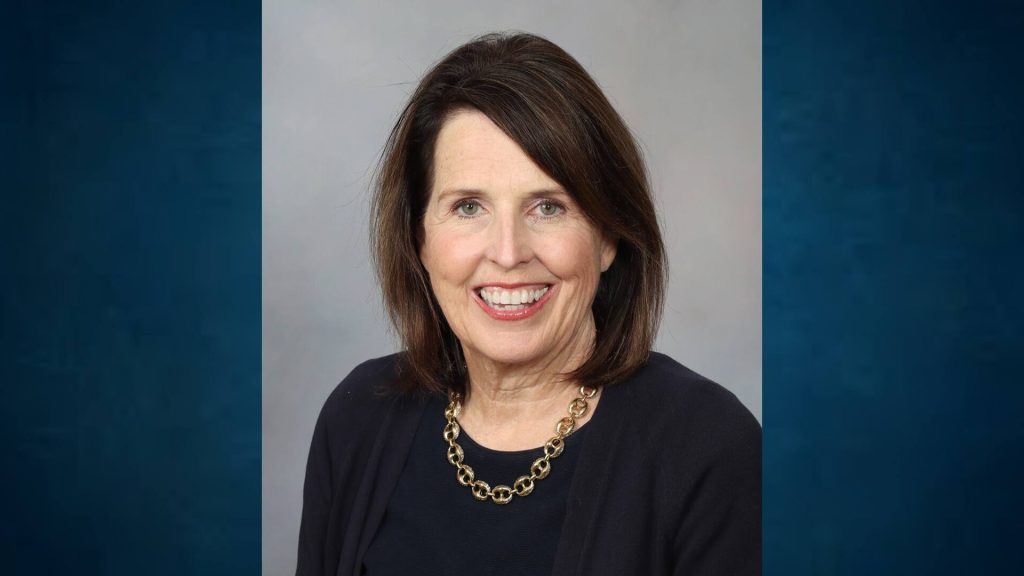-
Women in science: Q&A with Martha Grogan, M.D.

March is Women's History Month and an opportunity to celebrate the achievements of women in science and research.
Women make up just 33% of the world's researchers, according to the United Nations.
That's changing according to Felicity Enders, Ph.D., director of the Office of Research Equity, Inclusion and Diversity. As is their role in the field.
Today, there are "more women not only entering the field but also moving into leadership," she says.
Among them is Dr. Martha Grogan, a clinician-researcher in Cardiovascular Diseases at Mayo Clinic. Dr. Grogan shares her perspective and advice for others pursuing a career in the sciences in this Q&A below.
Martha Grogan, M.D.: Be brave and follow your passion
Dr. Grogan has more than three decades of experience as a clinician-researcher in cardiovascular medicine at Mayo Clinic. With researchers Marina Ramirez-Alvarado, Ph.D. and Angela Dispenzieri, M.D., Dr. Grogan co-leads the Mayo Amyloid Team, a leader in amyloidosis research and treatment.
Dr. Grogan's areas of clinical research include studies analyzing diagnostic imaging, treatment and outcomes for patients with cardiac amyloidosis. She has developed a successful cardiac amyloid clinical trial research program and is an associate professor of medicine in Cardiovascular Medicine.
How did you come to a career in science?
I was led to medicine because of the combination of art and science. At Mayo Clinic, we encourage everyone involved in medicine to be part of our mission, and that requires an inquisitive mind and a scientific approach. I started out doing classic retrospective studies when I was a resident and a fellow here. I became very interested in amyloidosis, which opened up all sorts of opportunities to collaborate with this wonderful multidisciplinary team that won the Team Science Award. Now we have a major cardiac amyloid research program that is supported by six full-time study coordinators enrolling patients in clinical trials.
Having the opportunity to work with basic science researchers such as Dr. Ramirez-Alvarado, and then to bring a drug all the way through a clinical trial — that's a very satisfying career.
What positive changes have you seen for women?
We have had an explosion of opportunities within research and more flexibility that makes it easier for women to participate. There is more recognition, and more women who are role models.
People are trying to balance their families, their personal life and their interests outside of medicine. If you have a great idea about a research project, it literally might come to you while you're watching your son's tennis match. Flexible lifestyles or work schedules are going to be important for everyone who has those commitments outside of their official careers.
Early in my career, I didn't think I was going to be able to participate in all three areas really well — research, education and practice — and do what I wanted in my life outside of science and medicine. So I put the research a little bit on hold and did more education and practice. That was a conscious decision I made until our son was older. Once the time came, the amyloidosis field was something I was very interested in and passionate about. I saw the tragedies that we had with this horrible disease, and new therapies started to evolve. Dr. (Angela) Dispenzieri and others gave me the opportunity to become involved in clinical trials. There's that phrase "Luck is when opportunity meets preparation." I had to learn a fair amount on my own, but I was in the right place at the right time. And I recognized that and was brave enough, or had enough vision, to realize it.
To me, the key is you have to be open-minded and ready to look for those opportunities. It's not so much what our culture allows us to do but what we allow ourselves to do — to be brave enough to try something we've never tried before.
What advice do you have for women who are pursuing a research career?
You truly have to find what you are passionate about, and passionate means you're so interested in it that you literally might wake up in the middle of the night thinking about it.
The other thing is that a research career does require a positive attitude. Not everything is going to go well — you're going to fail many times. But that doesn't mean that you can't do it. You need to be resilient when you're trying something new.
There are metrics of success — how many papers, what academic rank. Some people get pigeonholed into external validations, but the bottom line is having your own definition of success. And that might not be the accepted one or the conventional wisdom.
The ultimate success for me has been truly the joy of seeing new therapies delivered to patients. We were the largest enrolling U.S. center in one of the clinical trials for a medication that significantly reduces the chance of dying or being hospitalized due to this disease. To me, the biggest joy is to see the improvement in the quality of life and quantity of life for patients.
Related posts:
- Women in science: Q&A with Robin Patel, M.D.
- Mayo Clinic Q and A: Treating atrial fibrillation with blood thinners — understanding the benefits and risks







